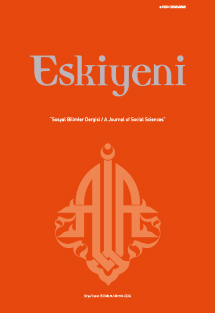Politik Kararlar Almada Dindarlığın Etkisi Nedir? Yetişkinler Üzerine Nicel Bir Araştırma
What is the Role of Religiosity on Political Decision-Making Styles? A Quantitative Study on Adults
Author(s): Doğan Bekir Dökücü, Ali AytenSubject(s): Sociology of Politics, Sociology of Religion
Published by: Anadolu İlahiyat Akademisi
Keywords: Psychology of Religion; Voting Behavior; Voter Behavior; Political Decision-Making; Cognitive Heuristics; Religiosity; Dimensions of Religiosity;
Summary/Abstract: The political decision-making process, which corresponds to an individual's determination of which candidate or party to vote for during elections, emerges from a cognitive process. Voters use various decision-making styles in this political decision-making process, and the decision-making styles used by individuals vary depending on several factors. Among these factors, it is believed that one significant aspect influencing individuals' lifestyles, cognitive frameworks, and perspectives is religion and religiosity. The examines the relationship between individuals' political decision-making styles and their religiosity level. In addition, the moderating role of seeing voting as a religious duty in the relationship between religiosity and political decision-making styles is also examined. The study group of the research consists of 310 participants residing in different districts of Istanbul, ranging in age from 25 to 65. A Personal Information Form, Political Decision-Making Scale, and Religiosity Scale are utilized to collect relevant data. The research data was collected face-to-face in November 2021. It is fair to say that the findings obtained have indicated strong relationships between political decision-making styles and religiosity tendencies. As matter of fact, it has been found that as individuals' religiosity tendencies increased, their tendencies towards that enabled faster and easier political decision-making styles. Individuals with higher levels of religiosity also tend to exhibit a preference for rapid and straightforward, cognitive shortcut-based, partisan, and intuitive decision-making styles. Analyses of the relationship between religiosity and analytical decision-making style revealed a positive association, indicating that a tendency towards the knowledge-worship dimension increased the inclination towards analytical decision-making style. In line with the data the study has yielded, the parameter of considering voting as a religious duty modarate religiosity and analytical decision-making. More clearly, it has been determined that seeing voting as a religious duty increases the effect of religiosity on analytical decision-making.
Journal: Eskiyeni
- Issue Year: 2024
- Issue No: 52
- Page Range: 31-49
- Page Count: 19
- Language: Turkish

